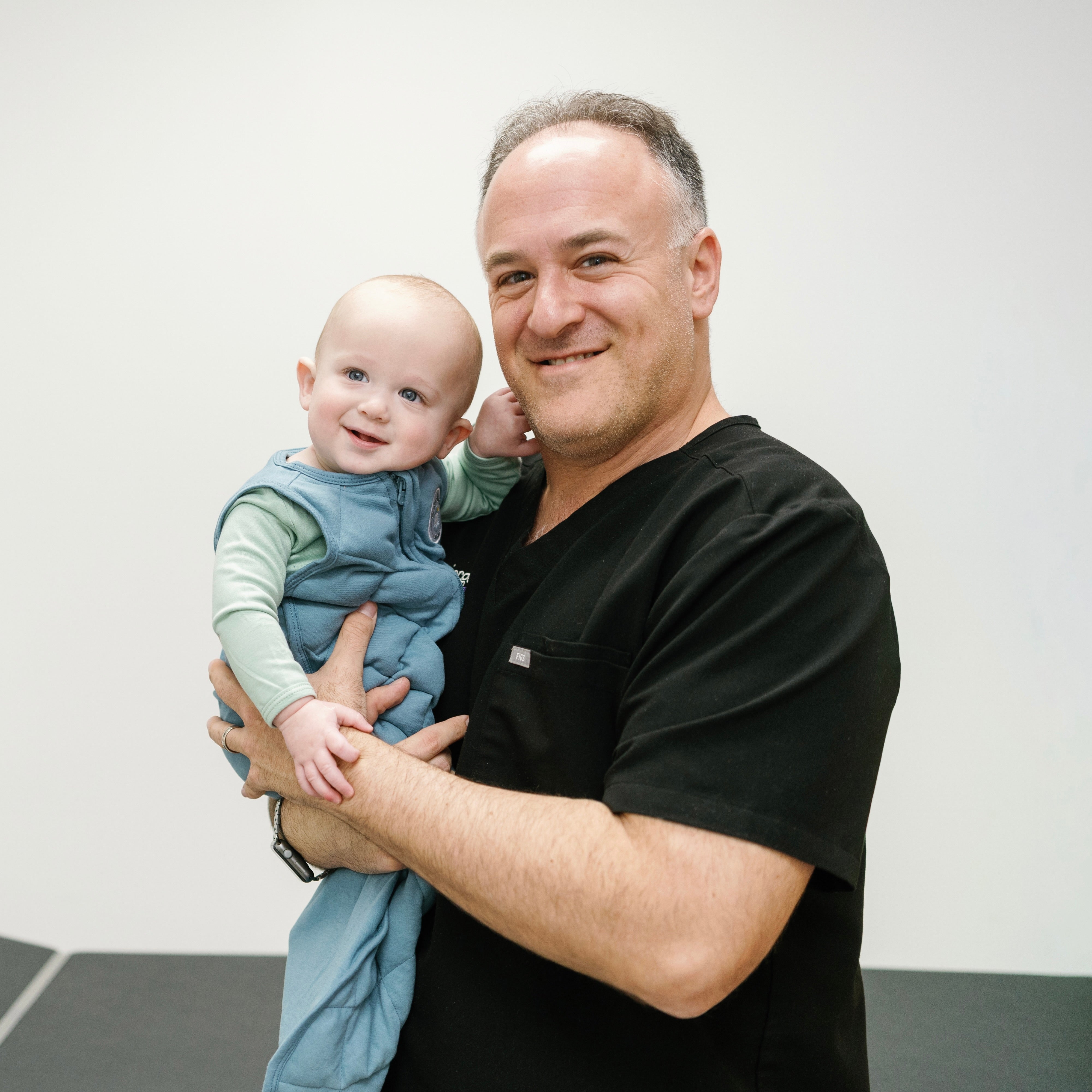When the clocks spring forward or fall back getting your baby to adjust can be a real challenge, often leading to sleepless nights and cranky mornings. But don’t worry! Pediatrician, Dr. Jonathan Jassey is here to offer practical tips and gentle strategies to help your little ones adjust ensuring everyone gets the sleep they need!
1. Gradual Adjustment
- Start adjusting bedtime gradually: In the days leading up to the time change, shift bedtime and wake-up time by 10-15 minutes earlier (for "spring forward") or later (for "fall back") each day. This eases the impact on sleep.
- Adjust naps: If your child still naps, shift their nap time in the same gradual manner.
2. Consistency in Routines
- Maintain bedtime routines: Stick to familiar bedtime routines (bath, stories, quiet time) so kids know it's time to wind down, even if the clock has shifted.
- Keep mealtimes steady: Align meal times with the new schedule to help their internal clocks adjust faster.
3. Natural Light Exposure
- Morning light for earlier wake-ups: After the time change, open blinds and let in natural light as soon as your child wakes. This helps reset their internal clock.
- Limit evening light: As bedtime approaches, dim lights to encourage the production of melatonin, the sleep hormone.
4. Physical Activity
- Encourage daytime activity: Physical activity during the day can help children feel tired and ready for bed at the appropriate time.
- Avoid late-day overstimulation: Keep stimulating activities earlier in the day to prevent difficulty winding down in the evening.
5. Be Patient and Flexible
- Understand sleep disruptions might occur: It can take a few days or even a week for kids to fully adjust, so be patient with extra fussiness or sleep resistance.
- Be flexible: While you work towards the new schedule, be understanding if they take a little longer to adjust.
6. Extra Comfort
- Comfort items: If your child is struggling to fall asleep or wakes up early, offer extra comfort like their favorite blanket or stuffed animal to help soothe them back to sleep. (*Dreamland recommends using our gently weighted sleep sacks to ensure your little one feels calm and comfortable!)
7. Limit Screens Before Bedtime
- Screen-free wind-down: Avoid screens (phones, tablets, TVs) at least an hour before bedtime, as the blue light can interfere with melatonin production.
I hope these tips make the time change easier for you and your children!
Dr. Jonathan Jassey is an AAP Board Certified Pediatrician and founder of Concierge Pediatrics, the first practice of its kind on Long Island, NY. He is the co-author of The Newborn Sleep Book and has received the Patients' Choice Award for three consecutive years and the Compassionate Doctor Recognition Award.


Share:
Caring for Newborn Skin During the Dry Winter Months
Dreamland Baby Holiday Bundle Gift Guide